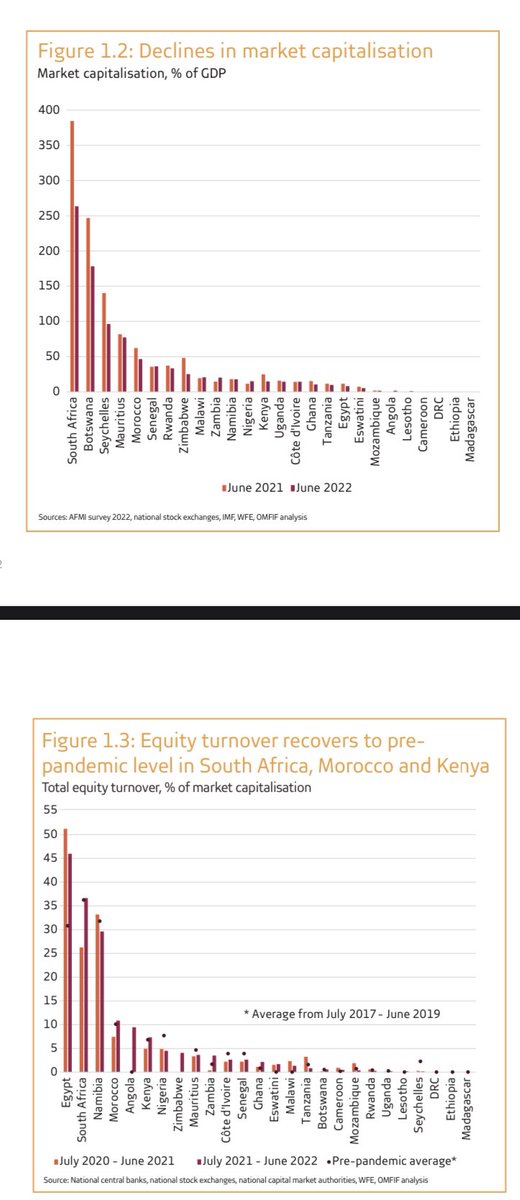I hosted the #AFMIndex2022 launch today which is a report on the financial markets of 26 African countries done by @Absa 

The first and most impressive detail from the launch is here; a breakdown of the markets by size, liquidity and product diversity. Markets are impressive when measured by GDP but the heat is real when that comes to ‘liquidity’ [Cash is king] #AFMIndex2022 

Uganda posts very impressive scores on all pillars except - and this is the heart of the matter - when it comes down to capacity of local investors [call it skin in the game] #AFMIndex2022 

Our market is truly ready for take-off and the regulatory infrastructure is amazing [with the exception of the newly raised minimum capital requirements for banks ] but Ugandans/local companies have little access to expensive credit #AFMIndex2022 

Our market capitalization as a country is still very low due to a poor savings culture, young financial instruments and low pensions [only 9% of the working class saves] as a result the return on equity is too low. In the figure it’s even hard to see #AFMIndex2022 

Our market offers 4 of 6 major financial products but we’ve not allowed green bonds and other sustainable bonds like a municipal bond [I’ll run for Mayor fortportal if we offer a municipal bond that’s decentralized] #AFMIndex2022 

Our capacity for local investment is still too low. Our pension funds are low but luckily they are nearly matched in assets to domestically listed assets [Our Capital markets are growing]
This is why the generational debate & approach to @nssfug must be appreciated #AFMIndex2022
This is why the generational debate & approach to @nssfug must be appreciated #AFMIndex2022

To realize how low our pensions are [despite being the best regionally] look at how we compare with established markets on the continent on pension per capita #AFMIndex2022 

• • •
Missing some Tweet in this thread? You can try to
force a refresh





